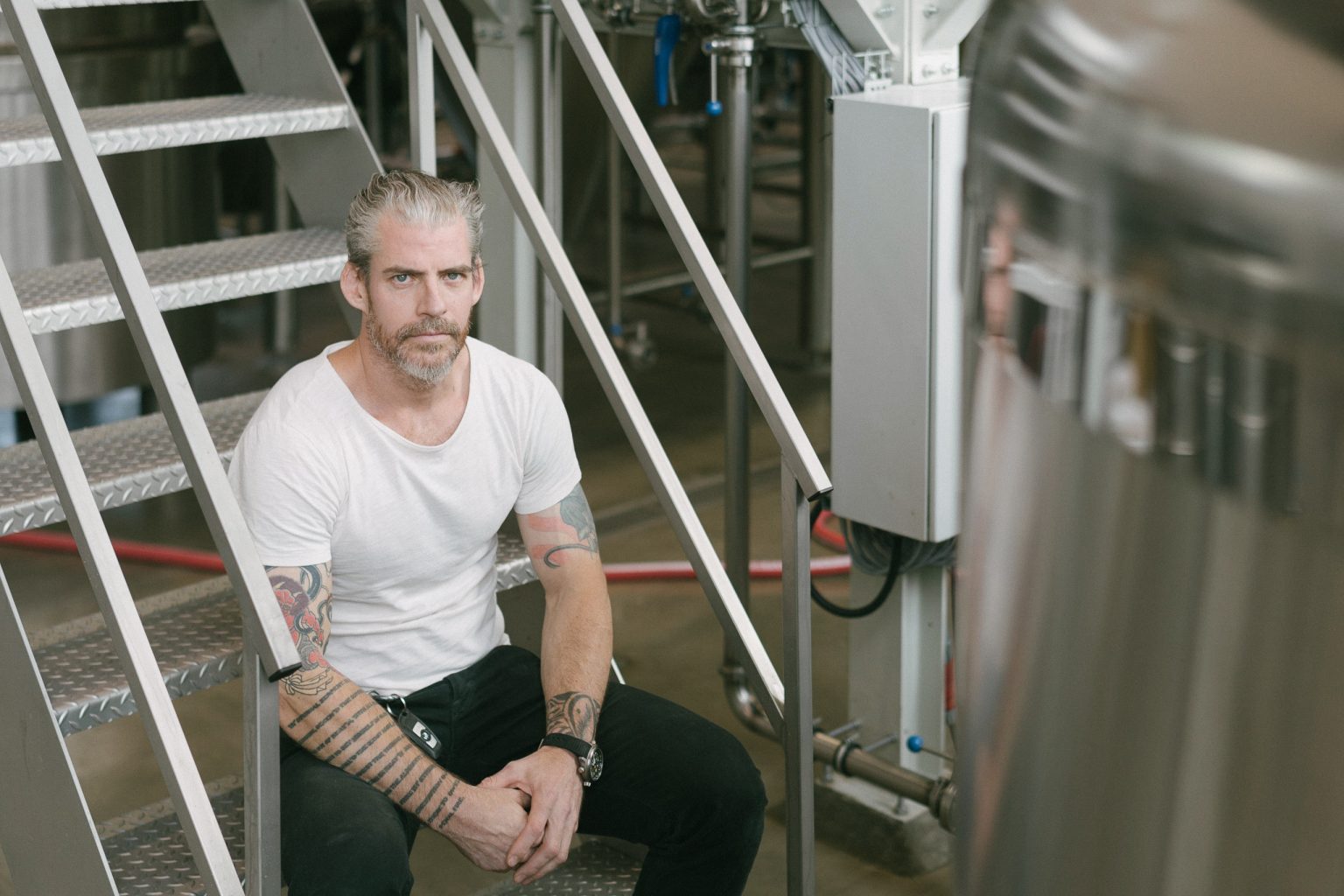In a past lifetime, Copenhagen’s Refshaleøen island was far different than today. The massive infrastructure was home to a huge boat building operation. But it has since come to represent the bedrock of some of Copenhagen’s, and Denmark’s, most respected culinary projects.
Started only a few years ago, Empirical Spirits is a self-described flavor company. They’re creating new definitions around flavor and while there are plans down the line, they primarily focus on this concept through the vehicle of spirits. On a recent trip to Copenhagen where I met Lars after lunch at Amass, I stopped by the distillery just a stone’s throw away to understand what happens when culinary acumen and scientific method meet under one roof.

The entrance and showroom of Empirical Spirits.
At MAEKAN, the story defines the medium. Some stories function best as written text, others hope to capture the emotion through an intimate audio experience. In cases such as this audio story, the transcripts we provide are done to the best of our ability through AI transcription services and human transcribers. We try our best, but this may contain small errors or non-traditional sentence structure. The imperfection of humans is what makes us perfect.
Lars: After eight years in place it felt like it was time to branch out and do something different. I knew that I want to do something with flavor as the innovation within flavors. What kept me up in the morning so I really want to continue that.
Eugene: What things go on in your mind when you try something new?
Lars: I need to, first of all, try something and just be blown away. It needs to go “wow.” One of my former mentors used to call it the “goosebump moment” where the hair would stand up on your arms and you’d just be really blown away.
Eugene (Voiceover): In a past lifetime Copenhagen’s Refshalevej Island was far different than today. The massive infrastructure was home to a huge boat building operation. But it has since come to represent the bedrock of some of Copenhagen’s most respected culinary projects started only a few years ago.
Empirical Spirits is a self-described flavor company. They’re creating new definitions around flavor. And while there are plans down the line they primarily focused on this concept through the vehicle of spirits.
Lars: My name’s Lars Williams, co-founder of empirical spirits. About two years now while I’ve been a chef all my life, most recently a restaurant, Noma, which has there as in the capacity of head of R&D for eight years.
Eugene (Voiceover): Empirical Spirits is the brainchild of Lars Williams and marked Emile Hermansen. Both are faithful alumni of Noma, a restaurant never far from the discussion around progressive and innovative ideas around cuisine.
From what I gather there’s no shortage of Noma alumni in and around Copenhagen. Of the two, Lars serves in some ways as the front man for the brand. His powerful presence dominates the room. He’s defined by slicked back hair, heavily tattooed arms, chunky boots, and an intimidating physique thanks to post-service Cross Fit sessions.
The empirical Spirit’s distillery is an interesting contrast. The entrance reveals a small showroom filled with books and other objects collected from years of travel. It makes for an intimate tasting environment. Soon after you see the whole operations behind another set of doors. The first touchpoint may look buttoned up and considered but their process behind relatively open doors is at times messy, and full of trial and error from the various conversations I’ve had with the team.
The whole place seems to be bolted on, not necessarily by necessity but because of an unforeseen growth in popularity and a knack for tinkering. But from what I witnessed it’s the outcome that’s refined and picture-perfect. And everything else? It’s not quite as pristine. When you’re pushing the boundaries and writing a playbook that doesn’t exist, you don’t care about how pretty or perfect the process is. For the Empirical Spirit’s team, this process is part cultural, part scientific and all parts emotional. Success is when you draw out an emotion or a feeling with that first sip. For Lars, this began very early on with travels around the globe.

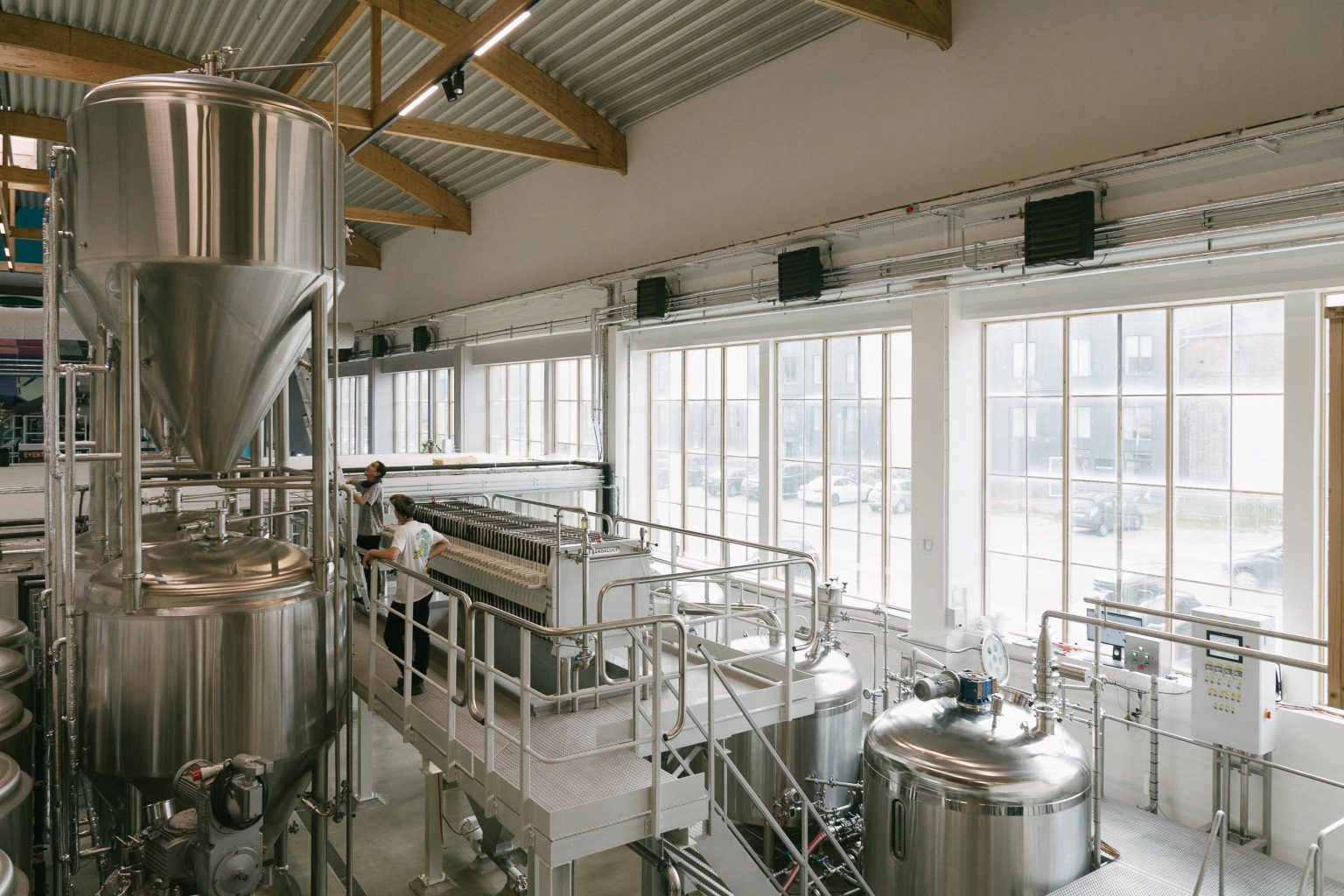
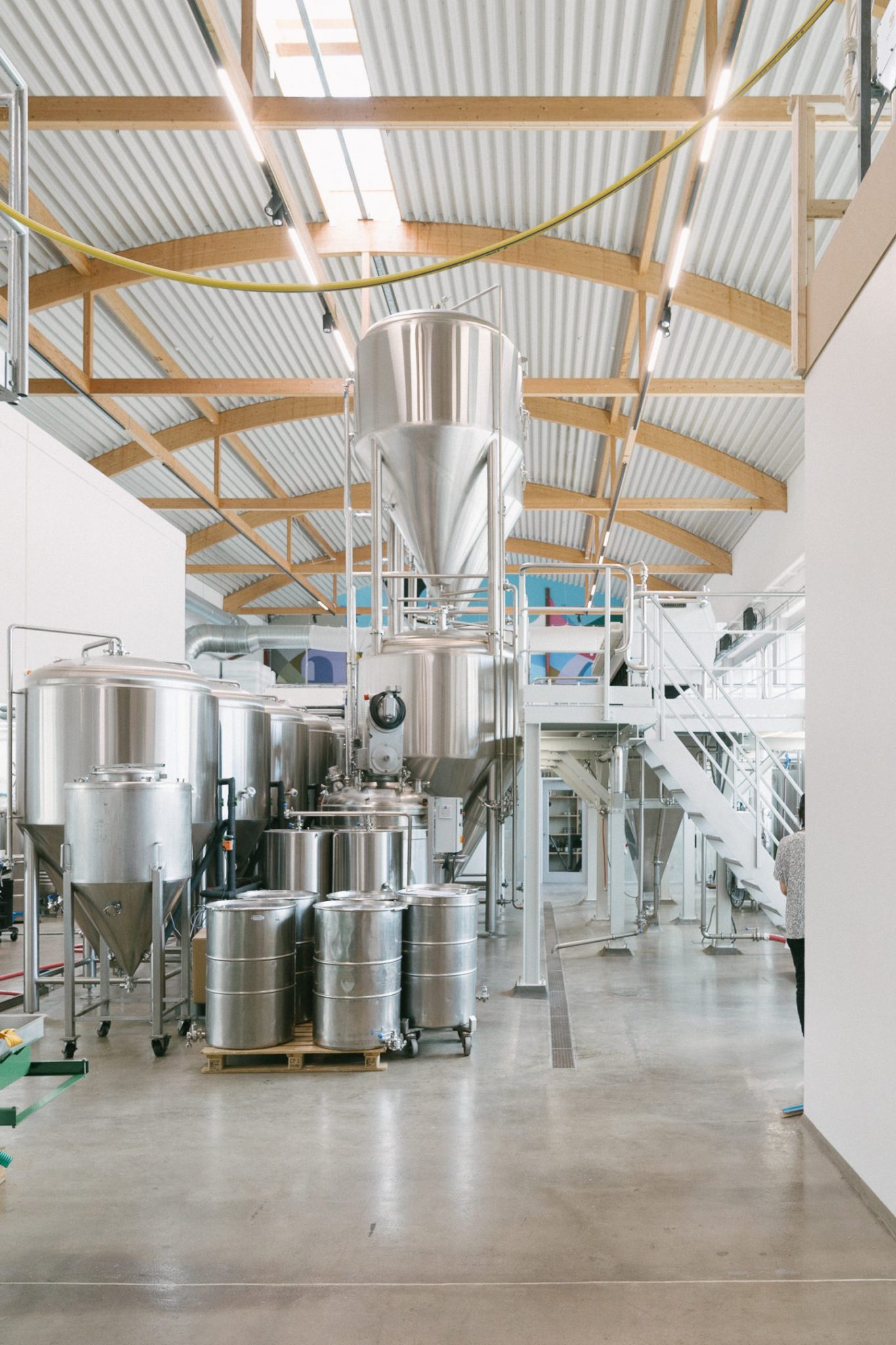
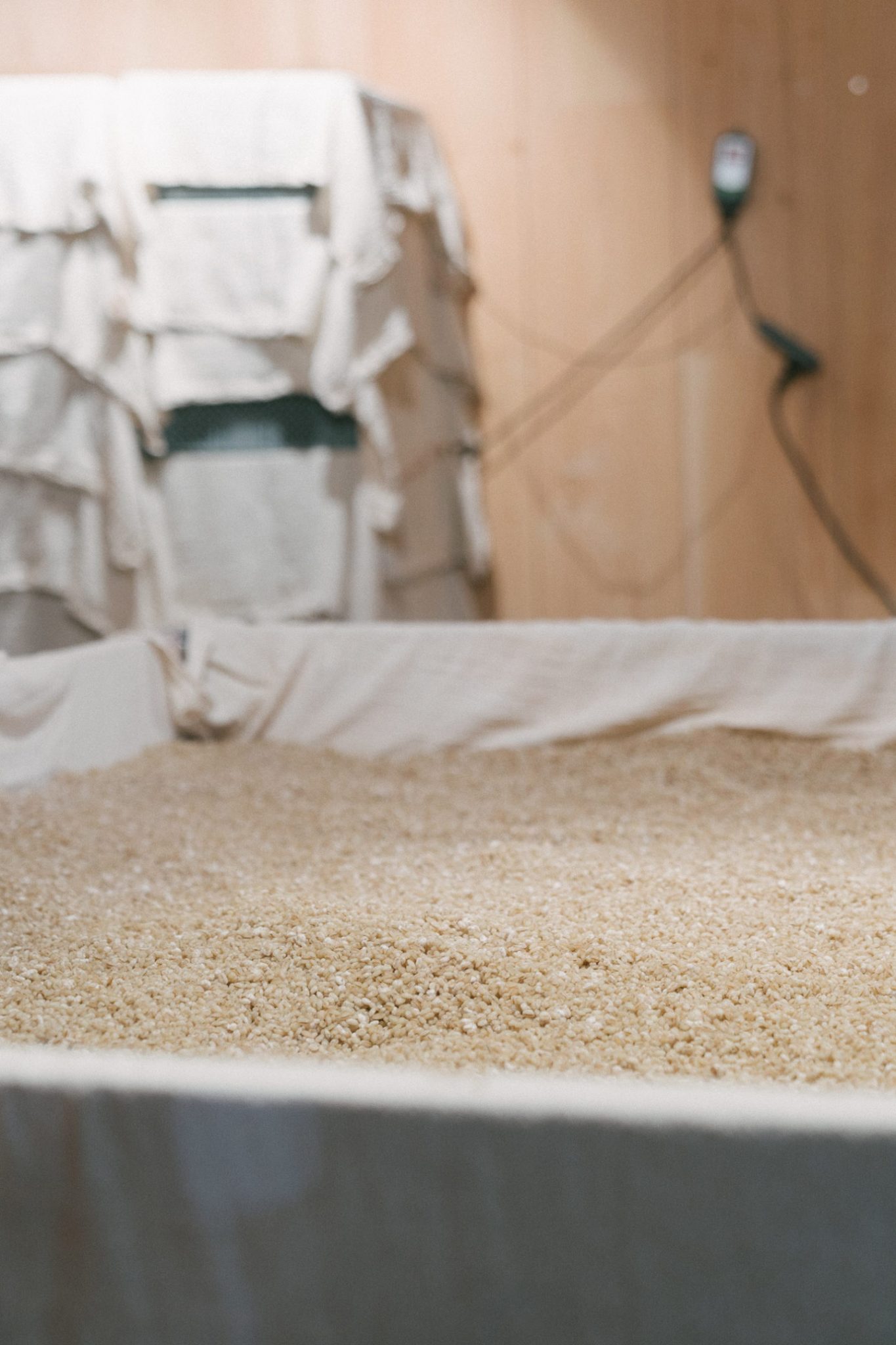
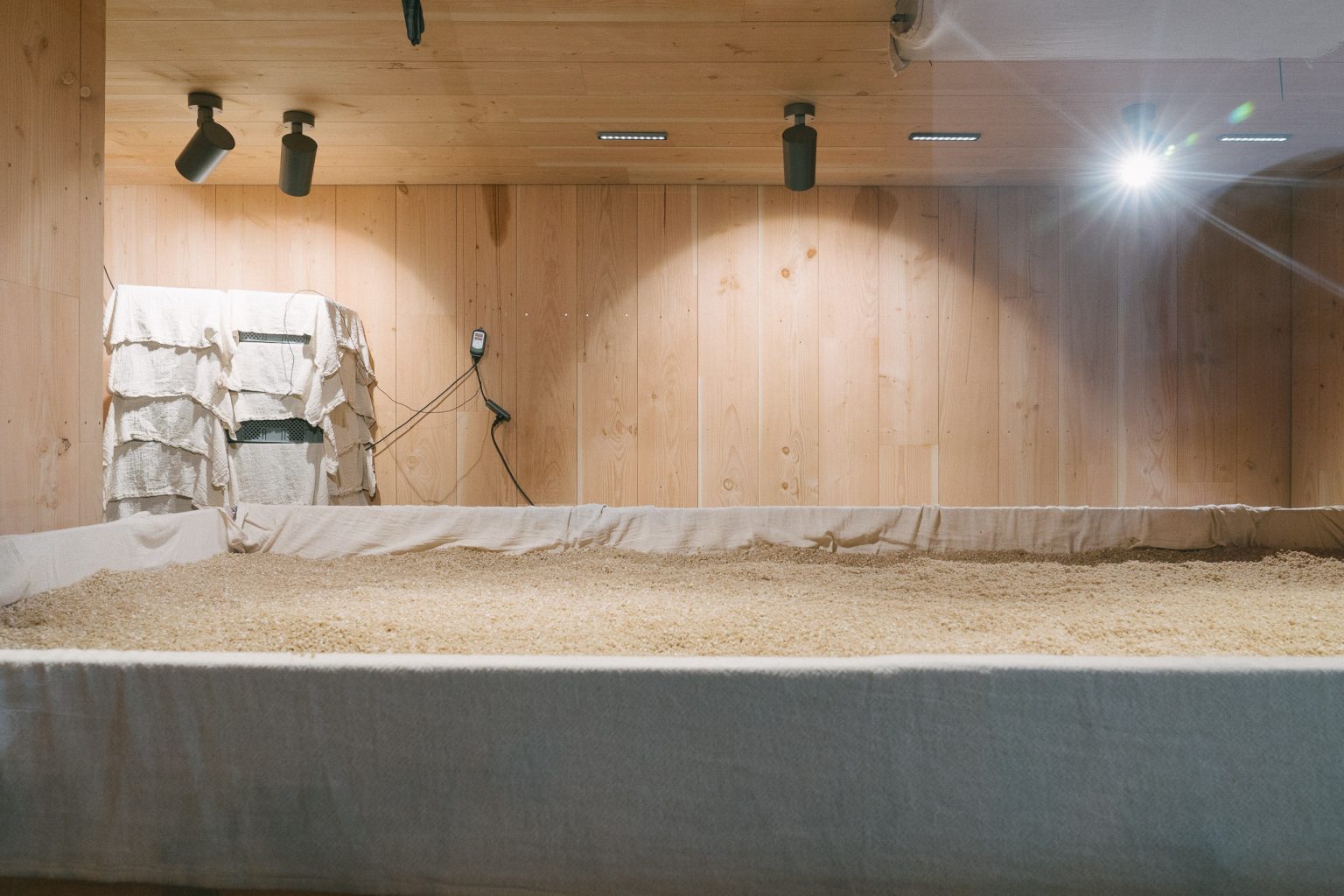
Empirical Spirits use barley inoculated with Koji-kin spores, a mold commonly used in fermentation in Japan.
Lars: I grew up in New York which exposes you to a very multicultural food experience. So I grew up eating Japanese food, Indian food, Chinese food — the whole gamut — and also my grandfather is Norwegian and so also fishing with him and he did a lot of home preservation and really got to see how food became a primary focus for cultural representation and cultural pride. And I was able to connect people through that. So all the family gatherings on my mother’s side, the food is always an incredibly important thing and people would look forward to having food that they didn’t normally have access to in the States for quite a while. I mean I also had the good fortune to go to Japan when I was five years old and I think experiences like that just completely changed the way that you think about things and having exposure to a completely different culture and tasting my way through that culture.
I think I had a very big impact on me. In the same way about. Traveling through Mexico when I was 10 just. I think the way I began to interact with different places was by tasting different parts of the cuisine.
Eugene (Voiceover): What makes Empirical Spirits unique is its underlying approach toward spirits. They inoculate barley with Koji-kin (aspergillus oryzae) pores. This forms their base known as Helena which is their mother spirit. It’s a double-fermented clear Koji spirit made from barley Koji, pilsner malt and Belgian saison yeast. This blends Eastern with the Koji, and Western fermentation methods to create a smooth base spirit with subtle nutty aromas and a delicate sweet barley character. Koji provides a signature flavor profile that yields a sweet umami and floral note. From there, all of Empirical’s other blends are based off of Helena. While traditional spirits companies are rooted in conventional formats such as your gins, whiskeys and such, Empirical Spirits breaks away from that. “Spirits” are in the name. But their philosophy in existence is rooted in flavor.
Eugene: When I look around the room right now, you can see there’s beverages from Taiwan or China all over and something that’s really interesting. But in terms of Empirical Spirits and what it represents how easy or hard is it to describe? And the reason why might be hard is because you guys are doing things that most people have never done before.
Lars: Yeah, I mean the question I always get when I tell people that I have a distillery is, “Oh, what spirits do you make? Is a gin, is it whiskey?” And we make something that tastes sorta like a gin and something that sorta tastes like a whiskey, but isn’t actually either one of those things and then a wide range of things that taste like nothing that people have had before.
So however it’s simple or natural it is to me to be pursuing this path that we’ve chosen, it is a little bit difficult to explain to people, but there’s always that really nice moment when they taste it for the first time and they’re like, “Oh, okay. Now I understand.”
Eugene: This idea of flavor is meant to be something cerebral but also rooted in a sense of materialism — not in the sense of consumerism and materialistic things but rather something tangible. The idea exists in your mind, but the flavor’s material. It’s something you can experience and take in. Lars shares how he approaches this concept of sense memory.
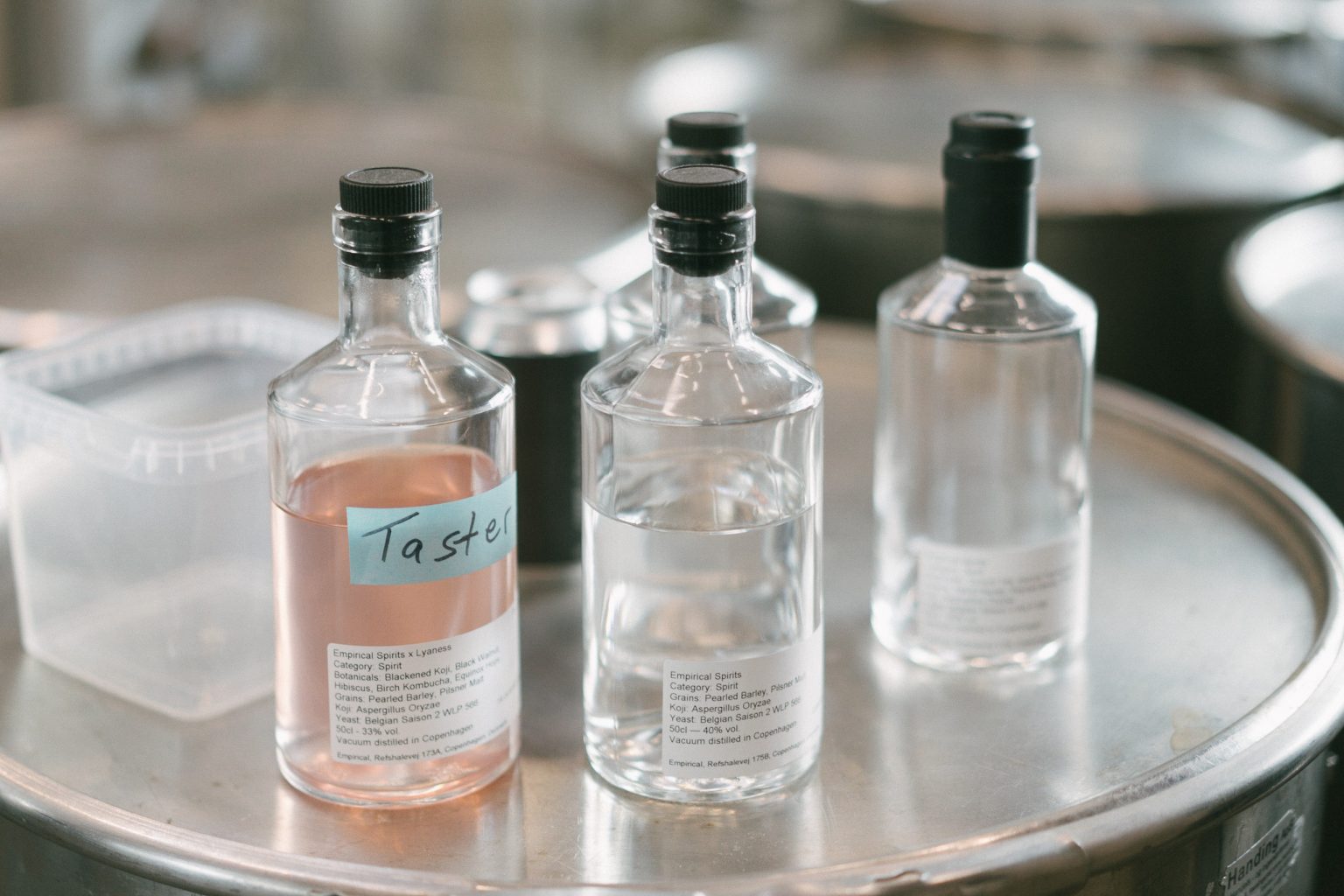
“I think broadly speaking people consider alcohol as just a means of getting hammered. You’d have a glass of natural wine or something like that as a flavor experience, but you’d have a gin and tonic at a bar to loosen up. We’re trying to show that alcohol can be consumed in a different way, where it is for the flavor experience.”
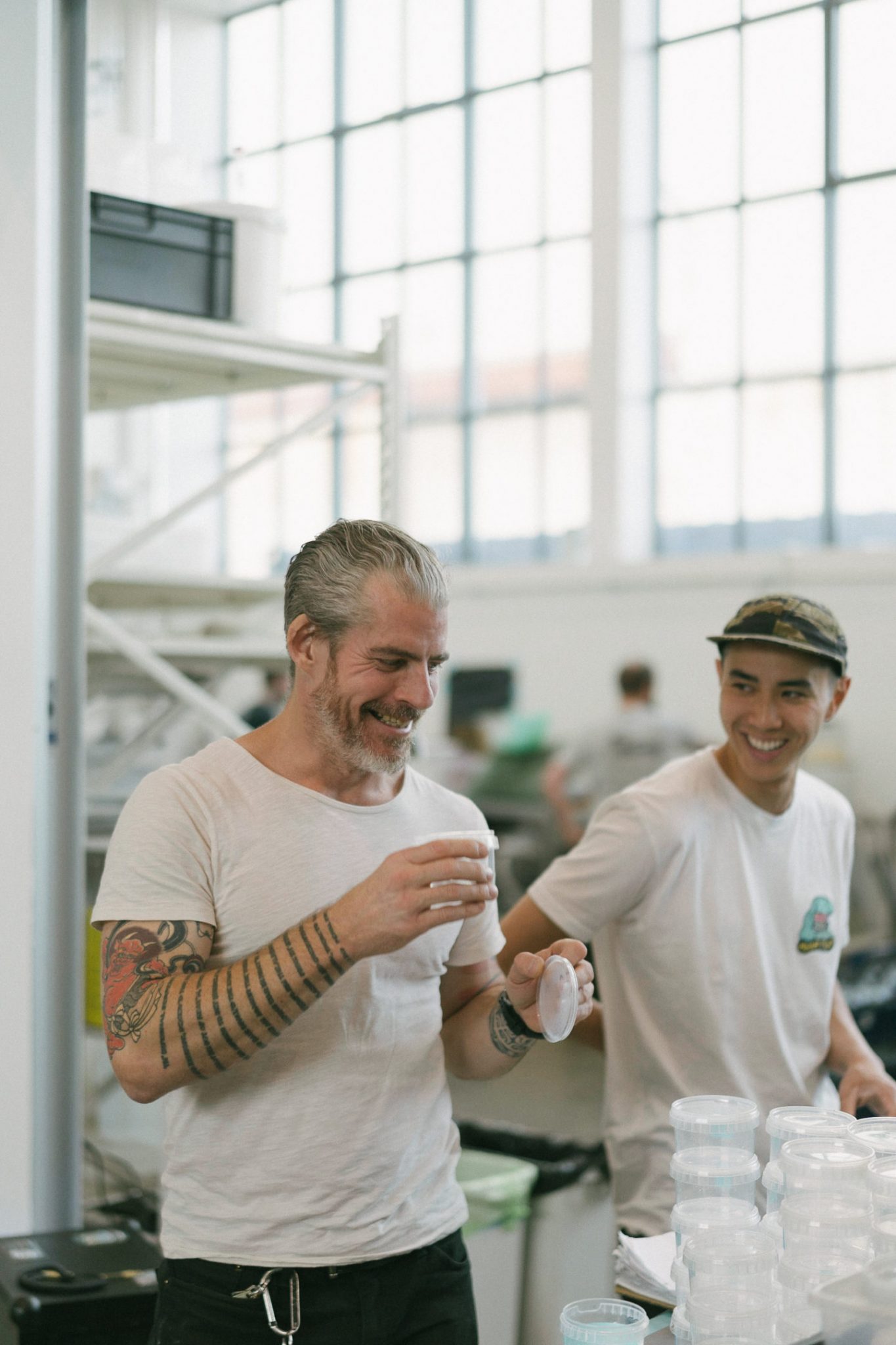
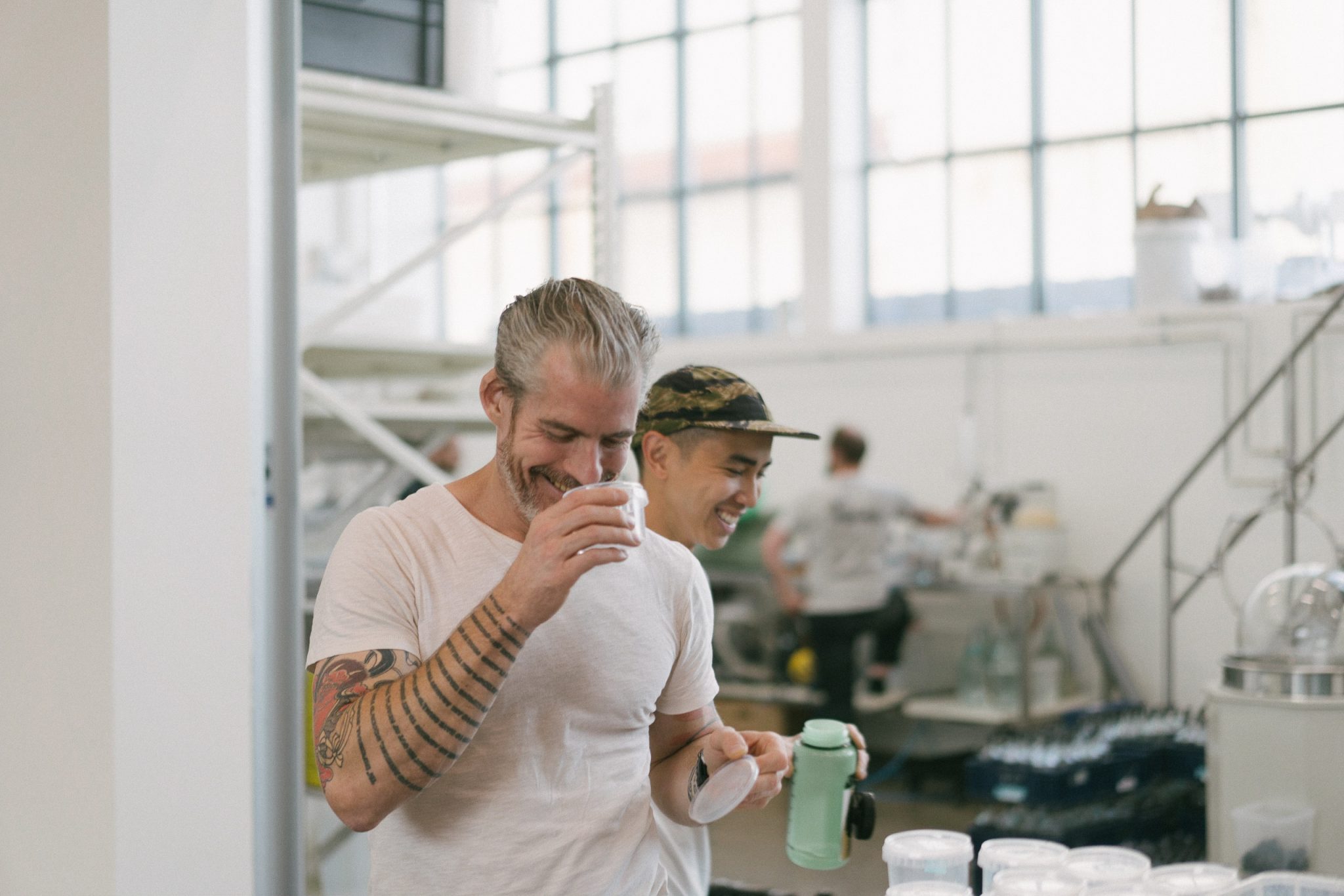
Lars: One of the things that I began to really try and create as a chef when we were designing food was to be able to transport people through a sense memory. So I always felt that we had achieved success when we could give somebody something that they had never tasted before, that reminded them of a memory from somewhere. You know, if we had put together a seaweed and green gooseberry dish, and it would remind people from different places in the world of a childhood memory about being on the beach. And you could do something like that and connect people through flavor experiences.
That’s when I thought I was really successful and that’s what we’re trying to do here at Empirical. The very first spirit we did was one with Douglas fir. My sister has just had two small kids and so she hasn’t had a chance to visit me in quite a while and I was foraging in the woods just north of Copenhagen. It’s a beautiful day and crisp and the whole air smelled like pine trees. This Emerald moss is squishing as you’re walking and I really want to be able to share that experience with my sister and so we made this “forest experience” spirit. I think this was really exciting about working with spirits is you are able to craft that complex flavor that can connect you to a sense memory and then preserve it in a bottle.
Eugene (VO): The process is quite complex when you look at it from afar, but there’s a methodology behind the madness. It’s about breaking down a vibe and leveraging flavors. Picture something in your mind. How can you recreate that flavor? That’s a space in which Lars and the Empirical team operate.
Eugene: In terms of that whole process towards identifying that flavor journey. How much of that is just your experimentation or is part of it rooted in science?
Lars: I think broadly speaking people consider alcohol as just a means of getting hammered. You’d have a glass of natural wine or something like that as a flavor experience, but you’d have a gin and tonic at a bar to loosen up. We’re trying to show that alcohol can be consumed in a different way, where it is for the flavor experience. It is for that sense memory that you can get from flavor. And it always needs to stir an initial reaction. You need to feel a connection to something that can take you down a different path. You begin with one idea and you’re looking for that network of flavors that’s going to actually create something.
We did a collaboration spirit with Alex Kratena just recently and he’d want to do something with coffee. We’re trying all these different things and then actually we ended up using coffee chaff which is a silver skin that comes off the beans when you’re roasting them because it had this smell of coffee when someone’s just brewing it as opposed to the bitterness of drinking it because that’s sort of like, it would be normally considered a waste product.”
We started looking into an intellectual connection. So we looked into it. We wound up making a spirit with coffee chaff, cherry stems and corn husks and those wind up becoming like a summer morning in the countryside for him.
Eugene (VO): Earlier, I alluded to how a lot of Empirical Spirits’ early operations seemed to be pieced together in ad hoc fashion. The lack of commercial options meant that Lars had to get his hands dirty. He helped engineer some of the critical tools that are foundational to Empirical Spirits’ process. It turns out translating flavor under heat can really alter the end product. But thanks to a special invention, they’re able to distill at a much lower temperature. Traditionally, distillation occurs with high heat, but Empirical’s vacuum distillation allows this process to take place between 5 and 30 degrees Celsius, which allows for the preservation of flavors.
Eugene: Based on your previous career at Noma and then now, what role does innovation in itself facilitate your goals?
Lars: Well I mean, technology-wise, we’ve had to design all of our equipment and build the majority of it ourselves just because there wasn’t existing equipment that would do the job that we wanted. Our stills operate under almost a whole atmosphere of vacuum which means we can do the distillation at 15 degrees centigrade as opposed to more traditional 85, 90 degrees centigrade. That allows us to use a much wider range of things that we put into brackets as botanicals, but that can be fresh herbs, pine shoots, oysters — doing a distillation at such a low temperature means that we don’t have heat affecting the distillation or the botanicals. If distilled in a normal still fresh herbs, it’d wind up tasting like a really horrible vegetable soup whereas we can get these really bright vibrant delicate flavors.
It also has the benefit of being a closed system so all the very volatile compounds that you normally consider aromas actually gets captured back into the alcohol. So our spirit it has much more of a… the bouquet is much more present in the spirits.
Eugene (VO): Over the course of my tour, different parts of Empirical Spirits operations clearly represented different chapters of the company. The smoke row back is unassuming and frankly a bit underwhelming, but in the early stages it was a faithful companion in the Empirical Spirits expansion. One of the biggest takeaways throughout the process that Empirical Spirits alongside is decidedly scientific sounding name is very much an experiment we all have the opportunity of bearing witness to. Empirical Spirit is redefining what is flavor and where we find it.
Eugene: All the things you’ve built up in terms of interest and flavors and innovation, does that also open the door to things that are traditionally not edible?
Lars: Oh, definitely. My co-founder and I gave a talk at a symposium six or seven years ago and the title of the talk was “The Delineation Between Edible and Inedible.” And our hypothesis for the talk was that deliciousness was the defining line with the way that we can extract flavors and spirits as a lot of medicinal herbs. For instance where you wouldn’t want to ingest a certain amount of them, but we can extract the flavors safely and have that be a constant part of our alcohol. It also depends on what culture you’re coming from. In some parts of the world ants are very common to eat and then some parts of the world it’s not so.
Eugene: I notice that book up there on eating insects and that is one of the ones I want to pull down but it was too high! When you start approaching your process towards discovery and creating something to the final product, how has that changed for you through experience or has it generally been somewhat the same?
Lars: I think the more experience you have when working with flavor the easier it becomes to put together the jigsaw pieces. The way it feels for me and my mind is almost like a Rolodex of flavors. And as you do it more and more it becomes easier to “pre-sample” the flavors in your mind. So if I’m tasting something new that I’ve never had before, I can actually start running through the flavors that I have had before and match them. I’ll have a general idea of what direction I find is interesting.
Eugene (VO): Restaurants may very well be among the last remaining pillars of culture that you can only consume in person. You cannot experience the core of a restaurant from afar and even the most carefully packed takeout box flown halfway across the world will always fall short.
A meal from Lars and his intricate and carefully chosen flavors is nearly impossible to publicly experience today, but its beliefs around flavor, its process, and finally a spirit story, can still be enjoyed meaningfully the minute you take the top off the bottle. What Empirical Spirits does is allow flavors to be captured and disseminated on a much larger scale provided they keep up with the production.
“We try to be open and share ideas with as many people as possible. I think that’s also the only way that you can move forward in innovations. If you’re holding on tight to an idea and being secretive about it, you’re never gonna move past that and evolve to the next thing.”
Eugene: I recall reading something that you’d mentioned where there’s greater ability to share with a spirit. So I could take this spirit I could bring it back to Hong Kong and I could share with a friend. Versus previously when you were a chef at a restaurant, you actually physically needed to be there. How do you look at those two relationships now in terms of you being able to share your philosophy your insight into flavor?
Lars: Well it feels a lot more democratic in a way. Being able to move things in different parts of the world I think is a great way to connect to people because it’s amazing to cook a really beautiful theatrical meal for 40 people. But being able to take that same hard work and make something that is transportable is — I don’t know, it’s really exciting and feels very fresh and new for me.
Eugene (VO): As mentioned before Empirical Spirits and a distillery is located in Refshalevej. There it counts some of Copenhagen’s most interesting outfits as neighbors including Broaden & Build, a brewery and restaurant from Matt Orlando with which Empirical shares a roof, Amass — also by Matt Orlando, Little Bakery, La Banchina, Baby Baby and Copenhagen Contemporary. While some of these outfits Lars count Noma as their alma mater, the underlying Copenhagen community has united in helping push the narrative of innovation. The simplicity of design around Empirical Spirit’s own label and their insight into process represents their commitment to transparency and open source.
Lars: You know that very open sharing of ideas was something that we wanted to be part of our company as well. I mean that’s why we decided on the very simple label which is actually something that we had done originally just for internal purposes and then looking at how we could just strip everything back to the stark truth of things. It just made sense for that to be our label that we put on the bottles for customers because it has literally the ingredient list. And if you look at it closely, how to make the product. So we try to be open and share ideas with as many people as possible. I think that’s also the only way that you can move forward in innovations. If you’re holding on tight to an idea and being secretive about it, you’re never gonna move past that and evolve to the next thing.
Eugene (VO): So as we finished up the conversation, I was looking to understand what was the continuous spark that fueled Lars. For somebody who’s dedicated a good chunk of his life to flavor what was the element that fueled his interest for this long.
Lars: I don’t like to think of myself as jaded and I think I mean, Japan is an example, in particular, is I could go back there and eat every day for the rest of my life and probably still discover a new thing every time. But I think there’s also the curiosity — that really childlike curiosity I feel — it’s also part of our DNA here and wanting to explore things and wanting to have new experiences and why we’re excited about doing collaborations with friends in Africa or Brazil.
Recently two weeks ago, I was in the Brazilian rainforest and having those wild moments every time I picked up a fruit, so for us, it is about an exploration and then wanting to share those flavors with as many people as possible.



Eugene (VO): The childlike curiosity that drove us to understand the world as kids is a focal point of the Empirical Spirit’s process. But there’s also something at play here: Continual improvement. If you look at the full scope of Empirical Spirits, it’s an almost maniacal approach towards figuring out challenges, tinkering and exploring never before seen places.
The world of spirits traditionally falls within well-defined silos that adhere to existing norms Empirical Spirits just like how its distillery was built: it’s about tackling preconceived notions one process, one self-engineered machine and one flavor at a time.
Lars: It’s creating something new that I find most exciting, in the same way that I feel like tasting something new is really exciting. I constantly want to be pushing myself, pushing the team, pushing our industry forward and trying to improve every step of the way. Even when I was a child, I was always asking “why” all time, which is quite annoying. But there’s no point in taking something for granted and that there’s always probably a way to do it better. I mean I think that’s also as you see in the kitchen: you’re always trying to improve things to make it taste better and be more efficient. To have a plate of food go out in the best possible condition to the guests and so can you get it from the skillet onto the plate, out to the kitchen, out to the dining room two minutes faster, it’s gonna be a much better product. So you’re always pushing yourself to try and do better and better.
Eugene (VO): Glad you stuck around. We couldn’t find a spot for this. But here’s an excerpt from our conversation with Lars about his most memorable flavors. And if you happen to be a native Danish speaker, I apologize for me trying to pronounce “Refshalevej.” (Eugene makes several failed attempts).
Lars: (Lars laughs) Well there’s something that has always stuck with me from childhood, the flavor of smoked fish. Youfind permutations of that preservation all around the world. One of the “eye opening” flavor moments that’s really stuck with me is the first time I tasted an ant. I was at a symposium and Alex Atala was there as well. And he kinda has this funny sense of humor and he comes up to René (Redzepi) and myself and he goes you guys have to try this. We look into the pot and it’s the color of this bright green color like the color of antifreeze and floating on top of the liquid in the pot is this layer of giant ants. And we’re like, “Alex, we’re not gonna try that. It looks fucking horrible.”
And he’s like, “No, no, try one. Try one.” And so we finally tried an ant and it was this combination of light lemongrass and ginger and spices and something in my head just clicked, where you can find such an amazing beautiful evocative flavor in something so unexpected and the way that you can find these things in grasses and tree bark, in spices, I think is really amazing.
